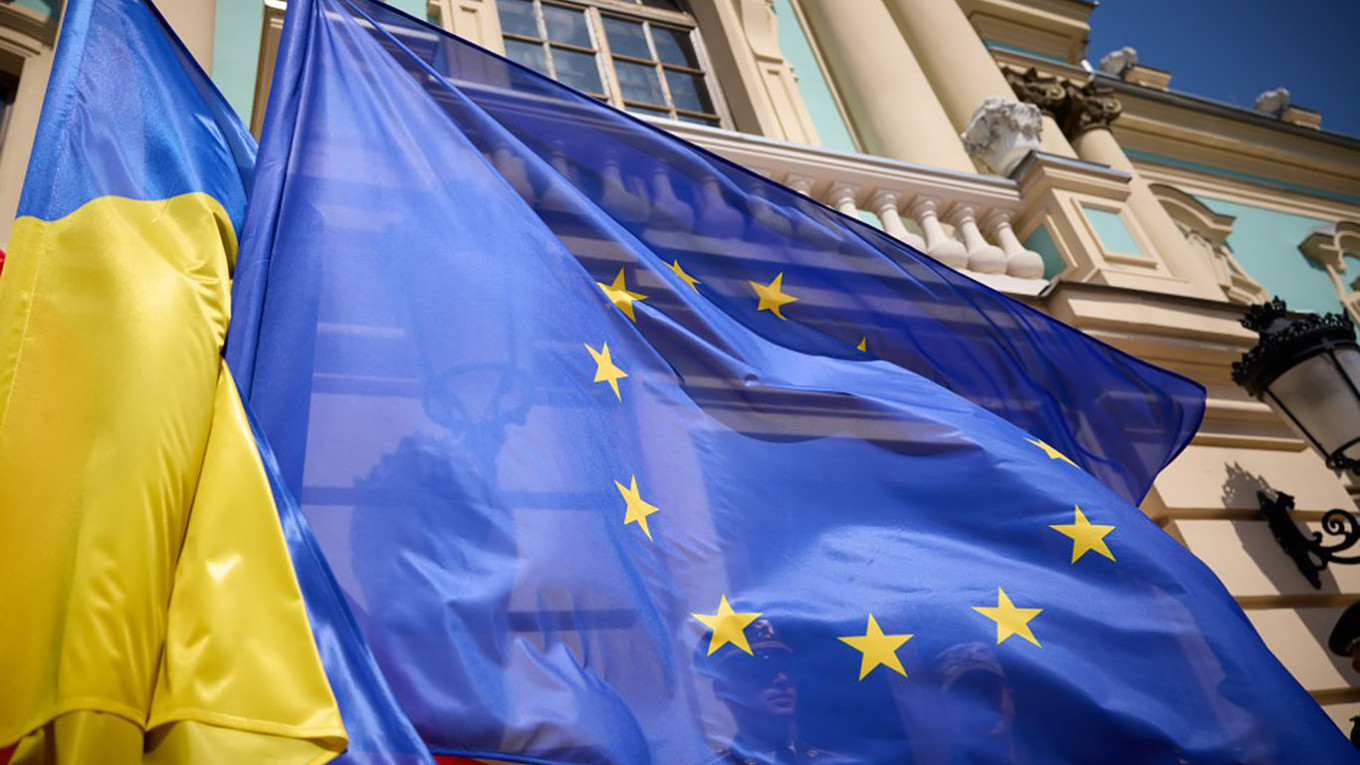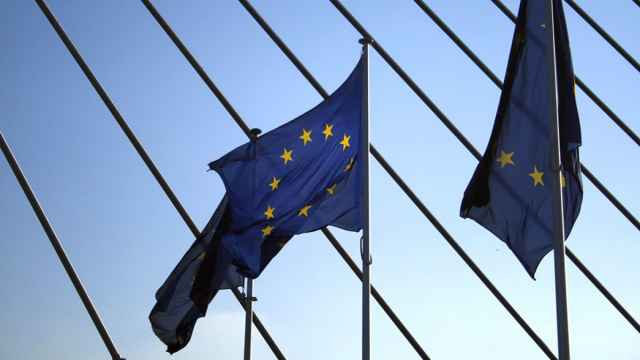The EU on Friday said 1.5 billion euros ($1.6 billion) had been made available to support Ukraine, the first chunk of money earned from profits on frozen Russian assets.
EU member states had agreed in May to use billions of euros in profits from frozen Russian Central Bank assets to help arm Ukraine and fund its post-war reconstruction.
The EU froze around 200 billion euros of Russian Central Bank assets held in the bloc as part of sanctions imposed on Moscow for its invasion of Ukraine in 2022.
About 90% of the funds frozen in the EU are held by the Belgium-based international deposit organization Euroclear.
"The EU stands with Ukraine. Today we transfer 1.5 billion euros in proceeds from immobilized Russian assets to the defense and reconstruction of Ukraine," EU chief Ursula von der Leyen said in a statement.
"There is no better symbol or use for the Kremlin's money than to make Ukraine and all of Europe a safer place to live," she added.
The money comes from interest generated from the frozen Russian funds, not the funds themselves, which remain locked away from Moscow.
Brussels said 90% of the money would go to a central fund used to pay for arms for Ukraine, known as the European Peace Facility.
The other 10% would go to the EU's separate Ukraine Facility to support the country's reconstruction needs.
Ukrainian Prime Minister Denys Shmyhal thanked the EU for its support.
"Thank you von der Leyen and the EU for your steadfast support and this significant contribution to Ukraine's defense and reconstruction," he said on social media.
"We are grateful to the EU for taking this vital step. This transfer will help us strengthen our defense capabilities," the Ukrainian defense ministry said.
Russia however condemned the "illegal" move.
"This is reason, of course, for thoughtful actions in response to such illegal decisions, which are implemented by the European Union," Dmitry Peskov, Russian President Vladimir Putin's spokesman, told journalists.
A Message from The Moscow Times:
Dear readers,
We are facing unprecedented challenges. Russia's Prosecutor General's Office has designated The Moscow Times as an "undesirable" organization, criminalizing our work and putting our staff at risk of prosecution. This follows our earlier unjust labeling as a "foreign agent."
These actions are direct attempts to silence independent journalism in Russia. The authorities claim our work "discredits the decisions of the Russian leadership." We see things differently: we strive to provide accurate, unbiased reporting on Russia.
We, the journalists of The Moscow Times, refuse to be silenced. But to continue our work, we need your help.
Your support, no matter how small, makes a world of difference. If you can, please support us monthly starting from just $2. It's quick to set up, and every contribution makes a significant impact.
By supporting The Moscow Times, you're defending open, independent journalism in the face of repression. Thank you for standing with us.
Remind me later.






